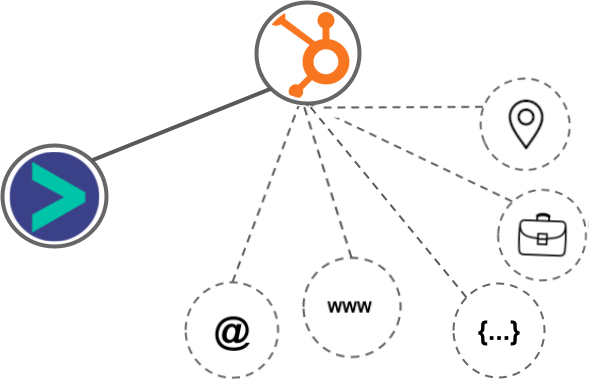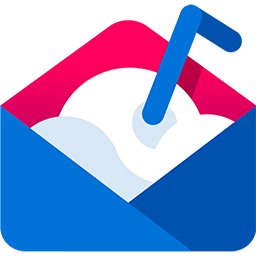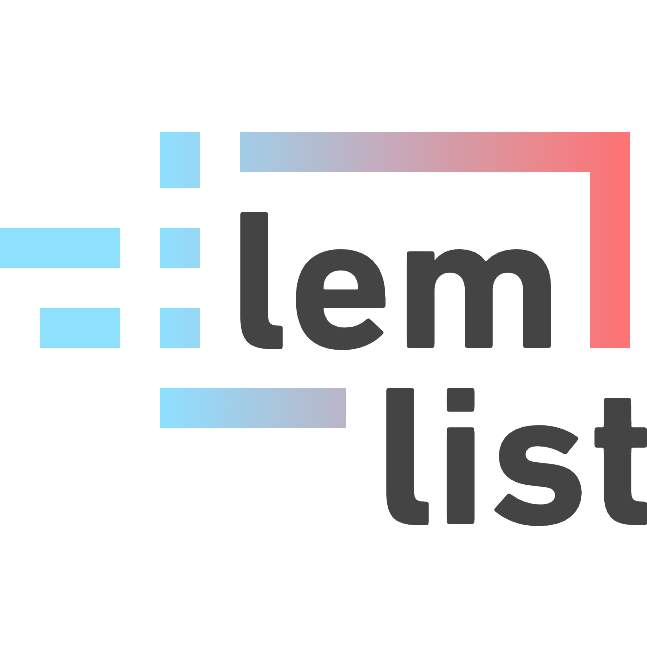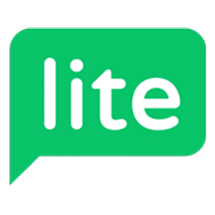Salesforce vs HubSpot Marketing
Hyperise integrates with 100's of sales and marketing tools, many of which are in the CRM category. With so many to choose from it's sometimes hard to know which is best, but don't worry, we've got your covered.
In this comparison guide we're going to look at the Highlights, Pros, Cons and Pricing of Salesforce and HubSpot Marketing. We'll also delve into the details of which offers the best personalization options within CRM, with there respective Hyperise integrations
Salesforce
Pricing: Salesforce offers various pricing plans for their products and services, such as Sales Cloud, Service Cloud, Marketing Cloud, and others. Here's a quick summary of the pricing: 1. Sales Cloud: Starting at $25/user/month for the Essentials plan, $75/user/month for the Professional plan, $150/user/month for the Enterprise plan, and $300/user/month for the Unlimited plan. 2.
Vs

HubSpot Marketing
Pricing: HubSpot offers a range of pricing plans for its various products. Here is a summary of their pricing: 1. HubSpot CRM: This is a free product, with no limitations on users or contacts. 2. HubSpot Marketing Hub: Pricing starts at $50/month for the Starter plan, $800/month for the Professional plan, and $3,200/month for the Enterprise plan. 3.
Salesforce vs HubSpot Marketing Highlights
Salesforce is primarily a customer relationship management (CRM) platform that focuses on managing and automating sales, marketing, and customer service processes. It offers features such as lead management, opportunity tracking, sales forecasting, and customer data analysis.
HubSpot, on the other hand, is an inbound marketing and sales platform that focuses on attracting, engaging, and delighting customers. It offers features such as content creation, social media management, email marketing, lead capture forms, and marketing automation.
Though both platforms have some overlapping features like lead management and marketing automation, Salesforce is more focused on CRM while HubSpot is more focused on inbound marketing. Ultimately, the choice between the two platforms will depend on the specific needs and goals of the business.
Salesforce vs HubSpot Marketing Pros
Salesforce Pros
- Sure, here are some pros of Salesforce compared to Hubspot:
- Stronger sales features and functionality
- Deeper customization capabilities
- Greater scalability and flexibility for large enterprises
- Advanced reporting and data analytics
- Highly reliable and secure cloud-based platform
- Advanced automation capabilities
- Greater integration options with other third-party systems
- Robust partner ecosystem and community support
- Stronger support for B2B business models
HubSpot Marketing Pros
- Here are some pros of HubSpot compared to Salesforce:
- More affordable: HubSpot is generally less expensive than Salesforce, making it a more budget-friendly option for smaller businesses or those just starting out.
- All-in-one solution: HubSpot offers a suite of marketing, sales, and customer service tools in one platform, while Salesforce may require additional integrations to achieve the same level of functionality.
- User-friendly: HubSpot's interface is often regarded as more user-friendly than Salesforce, making it easier for teams to adopt and utilize the software.
- Built-in SEO tools: HubSpot includes built-in SEO tools, helping businesses optimize their websites and improve their search engine rankings without needing to purchase additional software.
- Content management: HubSpot provides a content management system (CMS) to easily manage website content, while this is not an included feature in Salesforce.
- Marketing automation: HubSpot offers powerful marketing automation features that are also more accessible to small business users, while Salesforce may require additional configuration and setup.
- Strong customer support: HubSpot is known for providing strong customer support and a wide range of educational resources to help users get the most out of their software.
Salesforce vs HubSpot Marketing Cons
Salesforce Cons
- Salesforce can have a steeper learning curve and may require more training for new users
- Salesforce can be more expensive, especially for smaller businesses with fewer users
- The user interface of Salesforce may not be as intuitive or visually appealing as HubSpot
- Salesforce's customer support may not be as readily available or responsive as HubSpot's
- Salesforce may have more advanced features that are not necessary for all businesses, making it unnecessarily complex for some users.
HubSpot Marketing Cons
- Limited customization options in HubSpot compared to Salesforce
- HubSpot is more suited for small to medium-sized businesses, while Salesforce is designed for larger enterprises
- Salesforce offers more advanced marketing automation features than HubSpot
- HubSpot has limited reporting and analytics capabilities compared to Salesforce
- Salesforce offers better integration with third-party applications than HubSpot
- HubSpot may have a steeper learning curve for users compared to Salesforce
- Salesforce has a wider range of products and services, while HubSpot is primarily focused on marketing and sales.
Salesforce & HubSpot Marketing Hyperise Integrations
Salesforce uses the HTML code embed method to integrate with Hyperise, giving a simple way to add personalized images to your messages.
Salesforce makes the following data points available to Hyperise, to enable personalization in images used in outreach and linked out to your personalized website landing pages.
- Using business Email passed from Salesforce, Hyperise is able to enrich business logo and website screenshots. In some cases, with a business Email we're also able to enrich profile images, subject to the business email having a publicly available profile.
- Using business Website passed from Salesforce, Hyperise is able to enrich business logo and website screenshots.
- Business name
- City
- State
- Country
- Zip
- Category
Salesforce Integration Guide
HubSpot Marketing uses the HTML code embed method to integrate with Hyperise, giving a simple way to add personalized images to your messages.
HubSpot Marketing makes the following data points available to Hyperise, to enable personalization in images used in outreach and linked out to your personalized website landing pages.

- Using business Email passed from HubSpot Marketing, Hyperise is able to enrich business logo and website screenshots. In some cases, with a business Email we're also able to enrich profile images, subject to the business email having a publicly available profile.
- Using business Website passed from HubSpot Marketing, Hyperise is able to enrich business logo and website screenshots.
- Business name
- Job title
- City
- Country
HubSpot Marketing Integration Guide
 vs
vs  vs
vs  vs
vs  vs
vs  vs
vs  vs
vs  vs
vs  vs
vs  vs
vs 
 vs
vs  vs
vs  vs
vs  vs
vs  vs
vs  vs
vs  vs
vs  vs
vs 











 vs
vs  vs
vs  vs
vs 




